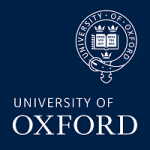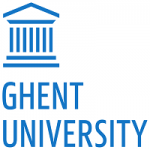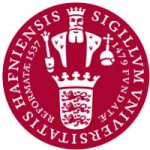项目介绍
About
The DPhil in Computational Discovery is a multidisciplinary programme spanning projects in Advanced Molecular Simulations, Machine Learning and Quantum Computing to develop new tools and methodologies for life sciences discovery.
This innovative course has been developed in close partnership between Oxford University and IBM Research. Each research project has been co-developed by Oxford academics working with IBM scientists. Students will have a named IBM supervisor/s and many opportunities for collaboration with IBM throughout the studentship.
The scientific focus of the programme is at the interface between Physical and Life Sciences. By bringing together advances in data and computing science with large complex sets of experimental data, more realistic and predictive computational models can be developed. These new tools and methodologies for computational discovery can drive advances in our understanding of fundamental cellular biology and drug discovery. Projects will span the emerging fields of Advanced Molecular Simulations, Machine Learning, and Quantum Computing while addressing both fundamental questions in each of these fields as well as at their interfaces.
Students will benefit from the interdisciplinary nature of the course cohort as well as the close interactions with IBM Scientists. After a very short induction period of one or two weeks, during which some basic training is provided, you will start a research project in your academic supervisor’s laboratory.
Most laboratories have weekly meetings where members present and discuss their research results with other members of the laboratory. You will also regularly present your work in progress seminars, which are attended by other research groups working in related areas.
Whilst working on your research project you will participate in a comprehensive, flexible skills training programme which includes a range of workshops and seminars in transferable skills, generic research skills and specific research techniques. There are also numerous seminars and lectures by local and visiting scientists and you are provided with many opportunities to meet leading scientists.
Projects and supervisors available for entry in 2021-22
Projects will be available across three related themes. Topics will include both fundamental and applied in each field. Particular focus will be given to interdisciplinary research at the interface of the three fields.
Theme One: Advanced Molecular Simulations
- Improved physical models of bio-materials
- Protein-membrane interactions
- Using molecular dynamic simulations to advance drug discovery or medicinal chemistry
- Combining computational and structural biology approaches to molecular discovery
Please contact the Theme Lead Phil Biggin if you have any questions about these projects.
Theme Two: Artificial Intelligence and Machine Learning
- Fundamental methodologies for ML
- Neuroscience inspired AI
- Applications of ML in molecular discovery
Please contact the Theme Lead Mihai Cucuringu if you have any questions about these projects.
Theme Three: Quantum Computing
- Algorithm development
- Applications in chemistry and molecular simulations
- Interface of Quantum and Classical computing
Please contact the Theme Lead Dieter Jaksch if you have any questions about these projects.
Supervision
The allocation of graduate supervision is the responsibility of the Medical Sciences Graduate School and it is not always possible to accommodate the preferences of incoming graduate students to work with a particular member of staff. Under exceptional circumstances a supervisor may be found outside the department leading the course.
Your supervisor may appoint a senior member of the laboratory as your day-to-day supervisor. Further support is available from your college advisor.
Assessment
There are a number of key stages in the research programme. Within a month of starting, you will meet with your academic and IBM supervisors to finalise your project and agree on an initial programme of research. Within the first three months, you will complete an analysis of your training needs with your academic supervisor.
Students begin the DPhil in Computational Discovery programme as a probationary research student (PRS). Before the end of their fourth term students are required to apply for Transfer to DPhil Status.
A successful transfer of status from PRS to DPhil status will require the submission of a transfer report. Students who are successful at transfer will also be expected to apply for and gain confirmation of DPhil status to show that their work continues to be on track. This will need to done within nine terms of admission.
Both milestones normally involve an interview with two assessors (other than your supervisor) and therefore provide important experience for the final oral examination.
You will be expected to submit an original thesis of up to 50,000 words after three or, at most, four years from the date of admission. To be successfully awarded a DPhil you will need to defend your thesis orally (viva voce) in front of two appointed examiners.
The frequency of meetings with supervisors will depend on which department your DPhil is based. Commonly, within those departments based with the Medical Science Division, once a fortnight is typical.
Graduate destinations
It is anticipated that the graduates of this course will have destinations in academic research, in the computing sector, and in end user sectors of machine learning more generally, especially in applications in the life sciences.
Changes to this course and your supervision
The University will seek to deliver this course in accordance with the description set out in this course page. However, there may be situations in which it is desirable or necessary for the University to make changes in course provision, either before or after registration. The safety of students, staff and visitors is paramount and major changes to delivery or services may have to be made in circumstances of a pandemic (including Covid-19), epidemic or local health emergency. In addition, in certain circumstances, for example due to visa difficulties or because the health needs of students cannot be met, it may be necessary to make adjustments to course requirements for international study.
Where possible your academic supervisor will not change for the duration of your course. However, it may be necessary to assign a new academic supervisor during the course of study or before registration for reasons which might include illness, sabbatical leave, parental leave or change in employment.
For further information please see our page on changes to courses and the provisions of the student contract regarding changes to courses.
录取要求
-
a first-class or strong upper second-class undergraduate degree with honours.
-
The qualification above should be achieved in one of the following subject areas or disciplines: biochemistry, chemistry, biology, cell biology, molecular biology, biophysics, physics, mathematics; or computation.
-
Please note that entrance is very competitive and most successful applicants have a first-class degree.
-
A previous master’s degree is not required in order to be considered for the programme.
联系方式
电话: +44 1865 270000相关项目推荐
KD博士实时收录全球顶尖院校的博士项目,总有一个项目等着你!






